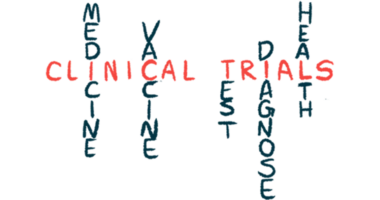Phase 4 Trial of Ixinity for Pediatric Hemophilia B Is Fully Enrolled
Medexus Pharmaceuticals has completed patient enrollment in its clinical trial investigating Ixinity as a preventive treatment for children younger than 12 with hemophilia B.
The open-label Phase 4 trial (NCT03855280) achieved its target enrollment goal of 22 participants and is being conducted in 15 centers in Brazil, Colombia, Moldova, South Africa, and Ukraine. Results from the study are expected to be submitted to the U.S. Food and Drug Administration (FDA) by the end of 2022.
“We are pleased to have enrolled our final patient for the Ixinity Phase 4 pediatric clinical trial,” Khaled Mohamed, director of regulatory affairs for Medexus, said in a press release. “We are hopeful that this study will allow us to expand the product label to include the U.S. pediatric population below 12 years of age.”
“We believe this could prove to be a vital, additional therapy option to the pediatric population and look forward to submitting the full data set to FDA by end of 2022,” Mohamed added.
Hemophilia B is caused by the lack of an essential blood clotting protein called factor IX (FIX). Ixinity, which was initially developed by Aptevo Therapeutics, is a replacement therapy that contains a lab-made version of FIX. It is administered intravenously (into a vein) as a routine preventive therapy, on-demand to treat bleeding episodes, and for the replenishment of FIX levels during surgery.
Ixinity is approved in the U.S. for therapeutic use in patients ages 12 and older with hemophilia B. Since about one in three hemophilia B patients in the U.S. are 12 or younger, positive results from the study could mean a significant increase in the number of patients treated with Ixinity, according to Medexus.
“The hemophilia B market in the U.S. alone is estimated to be in excess of USD $1 billion,” Ken d’Entremont, CEO of Medexus, said. “A label expansion inclusive of the pediatric market represents a significant market opportunity for Ixinity.”
The therapy was previously shown to be safe and well-tolerated in preventing and controlling bleeding episodes in treated children younger than 12 with hemophilia B. The findings were based on pooled data from a Phase 3 study (NCT01271868), with data presented at a 2017 science conference on 12 pediatric patients.
In addition, Ixinity’s efficacy in controlling bleedings in children was comparable to that shown in the pivotal Phase 3 trial (NCT00768287) in an overall patient population.
“If approved, we expect to be well positioned to commercialize quickly with the infrastructure we already have in place for the adult market,” d’Entremont said.
The ongoing Phase 4 trial will assess Ixinity’s safety, efficacy, and movement throughout the body in 22 children under 12 years of age with moderate to severe hemophilia B.
The study consists of three distinct phases and is designed to gather information on two age groups, children younger than 6 years and those 6 to 12.
In the first part of the study, patients will receive a single dose of Ixinity, and safety and factor IX activity evaluations will be conducted up to 50 hours post-infusion.
Patients will then start preventive treatment with Ixinity (second part), administered twice weekly at doses of 35–75 international units/kg for about six months. In its last phase, children may continue with the treatment for an additional six months.
The primary goal of the trial is to assess changes in patients’ annualized bleed rate during the first six months of treatment.







